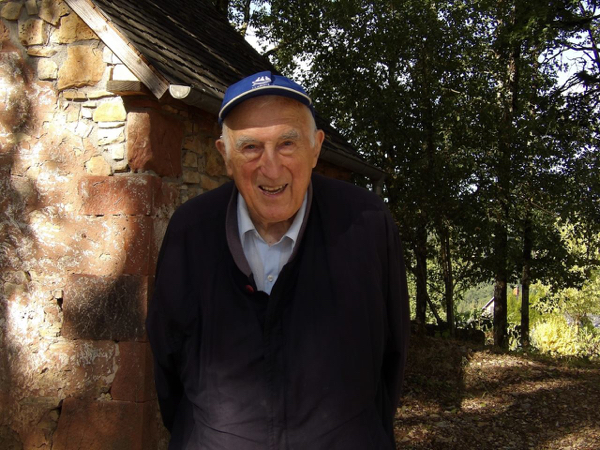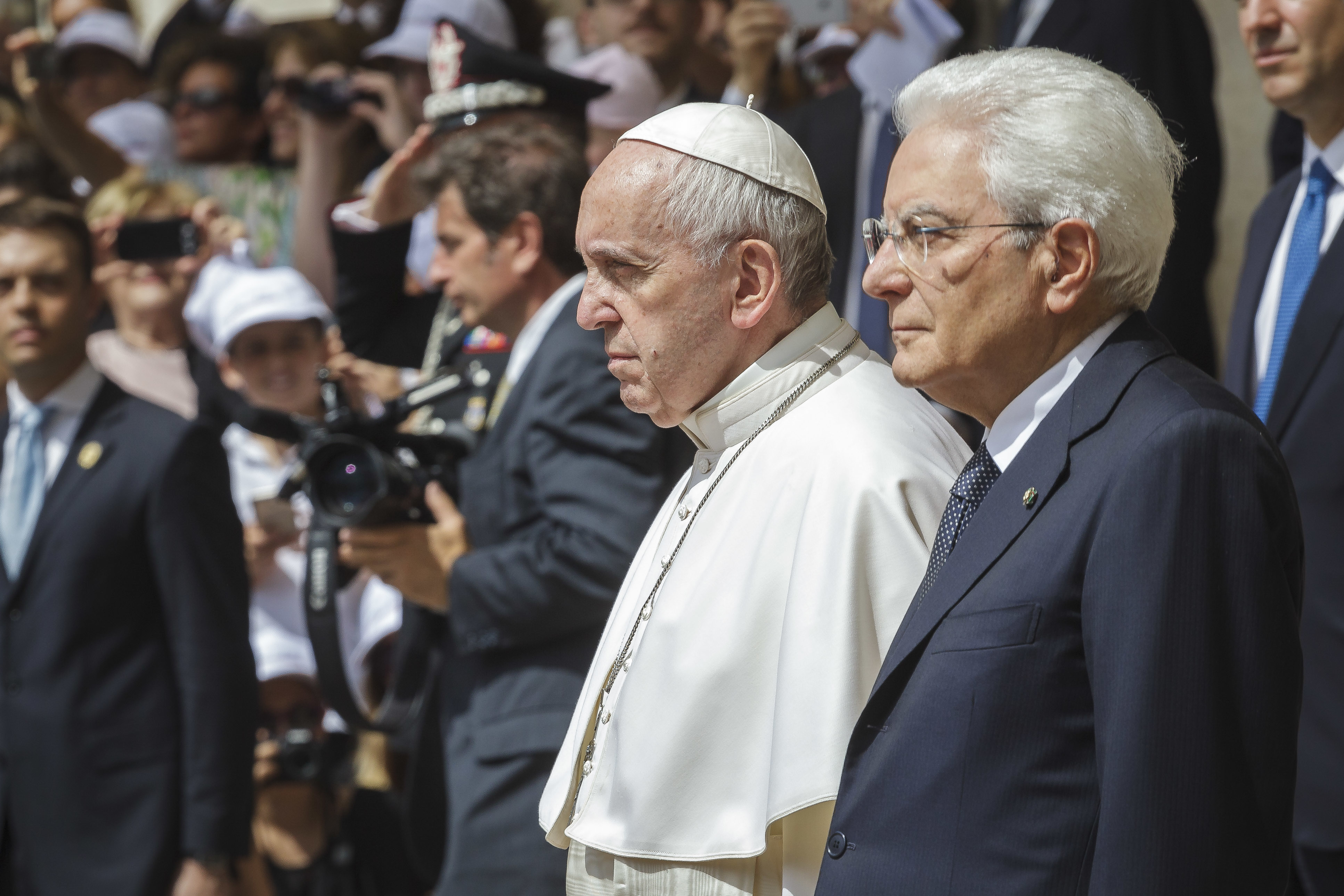The President of Italy says that attitudes of intolerance and aggression have "noisily" emerged in the country while praising Pope Francis for his attempts to build bridges with the Muslim world.
President Sergio Mattarella was speaking during an interview with Vatican News which comes amid rising tensions between the Pope and Matteo Salvini, the country’s interior minister.
The Italian president is a non-partisan figure whose job is to guarantee national unity, and during the interview emphasised that relations between the Holy See and Italy remain strong.
Salvini, the leader of the right-wing Northern League, rose to power on a platform anti-migrant rhetoric and has claimed Islam is incompatible with the Italian constitution. He has yet to meet with the Pope, who has repeatedly called for refugees to be welcomed and for dialogue with Islam.
The Interior Minister has, however, had more than one meeting with US Cardinal Raymond Burke who on the same day as the President Mattarella’s interview was released addressed a forum at Rome’s Angelicum University on the importance of “filial piety and national patriotism.”
During the 17 May event, walking distance from the Quirinale Palace, a residence of the Italian president, the cardinal was asked about the lack of any meeting between Salvini and the Pope. A written question from a member of the audience read: should a politician who refuses Muslim immigration be refused a papal blessing?
“To be opposed to large-scale Muslims immigration is a responsible exercise of one’s patriotism,” the cardinal said. While he stressed that “true refugees” should be helped this does not include mass migration. “To resist large scale Muslim immigration in my judgment is to be responsible,” he said.
Describing some immigrants as “opportunists” and said those coming from Muslim counties presented a problem because Islam “believes it is destined to rule the world”.
Cardinal Burke, one of the Pope’s most prominent critics, has links to President Donald Trump’s former chief strategist, Steve Bannon. The cardinal is president of the advisory board of Dignitatis Humanae Institute, the body through which Bannon wishes to set up a gladiator school in a former monastery in Trisulti, Italy, to teach culture warriors how to defend Judaeo-Christian values.
Talking to Andrea Tornielli, the editorial director of Vatican News and Andrea, the director of L’Osservatore Romano, President Mattarella said that “attitudes of intolerance, aggression” and closing off to the “needs of others” had burst into the open. However he said they are “minority phenomena”.
The source of the attitudes, he explained, came following the 2008 financial crash, the gap between the rich and the poor and the uncertainty created by globalisation and new technologies.
All this had created “situations of fear, mutual aversion, conflict between people, between social groups, [and] between territories within each country.” He said that religion was now increasingly the international limelight and that respect and dialogue between different faiths as the antidote to extremism.
He praised the declaration on Human Fraternity signed by the Pope and the Grand Imam of Al-Azhar in Abu Dhabi which he said helped removed the justification for preaching hatred or terrorism and is an abuse of “religious motivations". He also lauded Francis for his visit to Bangui, in the Central African Republic, rife with Christian-Muslim tensions, where the Pope asked a local imam to join him on the popemobile. Matterella said this a "highly effective" sign of "great openness."
Speaking just days before the European parliamentary elections the 77-year-old president admitted that large parts of the electorate were disillusioned with the European Union, although he said this was down to the “selfishness of states” rather than the EU’s institutions.
Nevertheless, he said that young people naturally feel both European and citizens of their own country; particularly those who are “digital natives” who enjoy low-cost flights across the continent and the chance to study at different universities in Europe.
The old continent needed to “recover the spirit of its beginnings,” and offer economic, civil, cultural and moral growth.
For his part, Cardinal Burke said that the European Union had departed from its original purpose, that “of a union of Europe when all governments respect the moral order”.
In his speech, the cardinal condemned "the sinful pride which inspires the pursuit of a single global government” and offered a narrow reading of the Church’s catechism on welcoming migrants stressing that “such welcome, as is clear from the text, is not indiscriminate.”
Cardinal Burke was joined for a question and answer session afterwards with Dutch Cardinal Willem Eijk who argued that divorced and remarried Catholics should not receive communion, and that couples who use contraception needed to go to confession before returning to the Eucharist.
As the cardinals left the auditorium in the Angelicum, they were greeted by members of the audience, with a number getting down on one knee to kiss the prelates' rings.
Speaking to The Tablet, the Cardinal Eijk said that the church in Holland is “getting smaller but the quality is getting higher, because those who remain are true believers.



 Loading ...
Loading ...